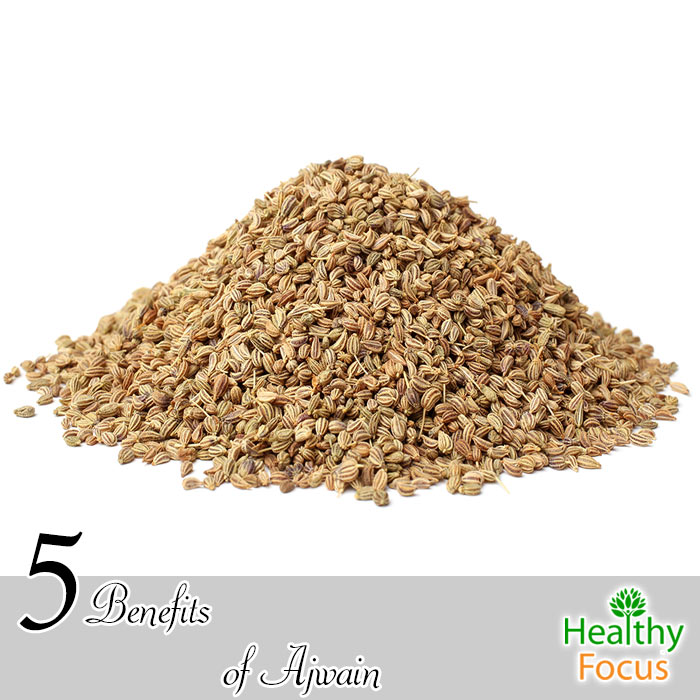What is Ajwain?
There is more to the benefits of ajwain than just a delicious spice in Indian cuisine. Ajwain, also known as carom seeds, has numerous medicinal properties as well. A part of the Apiaceae family, ajwain has similar properties to its sisters in the family, parsley, dill, and cumin.
What makes ajwain so effective in natural medicine is its high content of thymol, a natural antimicrobial, antibacterial, and antifungal agent. The distinctive flavor of thymol also makes it a popular ingredient in cooking and is responsible for the robust flavor of the herb thyme.
Benefits of Ajwain
Ajwain is a popular natural remedy in Ayrurvedic medicine. The natural oil, seeds, and flower extracted from Ajwain are used as a natural remedy, treating everything from colds to stomachaches.
1) Digestion
Ajwain is commonly used in Ayurvedic medicine to treat digestive disorders and is a popular remedy in Indian households for treating indigestion, heartburn, gas, and stomachaches. Ajwain contains thymol, which promotes the release of gastric juices. These juices help to break down food and facilitate easy digestion.
To get instant relief from digestive upset, boil a teaspoon of ajwain seeds in boiling water. Allow the seeds to steep until half the water has evaporated. Strain the seeds from the liquid and drink.
Another good way to get relief from a stomach, prevent heartburn, and jumpstart digestion is to combine a teaspoon of ajwain seeds with a teaspoon of cumin, and a half-teaspoon of ginger. Take this soothing mix with a glass of water.
2) Colds
The antibacterial properties of the thymol content of ajwain help to boost the immune system and speed up recovery from a nasty cold. The germicidal and antiseptic properties of ajwain make it an effective remedy for colds, cough, and congestion.
To help alleviate cough, chew on some ajwain seeds and sip on a glass of warm water. This remedy will help break up any congestion clogging up your airways and help treat uncomfortable symptoms associated with bronchitis.
If congestion has left you with a splitting headache, try putting some ajwain powder in a thin cloth and inhale the soothing scent.
3) Oral Hygiene
Thymol, a large component of ajwain, is revered for it’s antiseptic, antimicrobial, antifungal, and antibacterial properties. This makes it an ideal ingredient for mouthwash and other oral hygiene products. On top of its cleansing properties, ajwain is a great natural pain reliever, making it great for helping alleviate the pain of a toothache.
To make a natural, pain relieving mouthwash, combine a teaspoon of ajwain with some salt in a glass of warm water. Swish the mixture around your mouth for a minute and then spit out.
4) Wounds
The antiseptic properties make it great for cleaning minor wounds and skin infections. Thymol, a strong germicide found within ajwain disinfects the wound and ensures it heals safely. Thymol was commonly used in World War II to clean wounds and as an antiseptic during surgery.
To use ajwain on a minor wound or skin infection, simply crush up some ajwain leaves and apply it directly to the affected area. A physician should examine any serious wounds or infections before using ajwain leaves as a treatment.
5) Pain Relief
Ajwain can be used to treat a variety of different aches, pains, and irritation. Ajwain oil is a great way to treat pain associated with stomachaches, headaches, and earaches. Ajwain seeds and oil are effective in minimizing the pain associated with oral pain. To treat painful inflammation associated with arthritis, ajwain seeds and oil is a great natural remedy.
To treat arthritic pain, crush some ajwain seeds into a paste and apply directly to the affected area.

Leave a Reply
You must be logged in to post a comment.